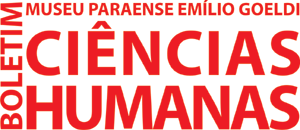| Formação histórica (origem) |
Nascida no ‘Pantanal’, a comunidade é formada por um conjunto de famílias ribeirinhas. As terras foram herdadas da avó Eugênia. A comunidade tem seus próprios cemitérios. Até poucas décadas atrás, dispunham de 500 hectares, cujo espaço foi reduzido para apenas 120 hectares. Os proprietários vizinhos cercam suas áreas e entram nas terras das comunidades.
Obs.: posteriormente, o trabalho de campo realizado por pesquisadores da UFGD revelou que a área de ocupação tradicional era, de fato, muito maior do que a área que conseguiram legalizar em nome do líder da comunidade. Isto ocorreu quando as terras da região eram disputadas por particulares que ali chegavam em busca de terras públicas, então consideradas devolutas. |
| Formas de uso da terra (ontem e hoje) |
Pesca e turismo são as principais atividades no tempo presente. No passado, havia uma escola rural na região. Plantavam arroz e feijão em várias áreas e para além dos 500 hectares. Na infância dos adultos de hoje, a comunidade foi vista como diferente, pelo fato de todos os seus membros serem de uma única grande família, composta por pessoas negras. Hoje, já não pescam e trabalham como empregados dos empreendimentos ligados ao turismo. Bebem a água do rio Correntes, que divide os estados de Mato Grosso e Mato Grosso do Sul, a qual estaria contaminada pelo despejo de esgoto e outras formas de poluição. |
| Expropriação ou conflitos (históricos e atuais) |
Um pedaço de terra foi cedido pelo avô para um compadre (onde havia a maioria das roças). Antes da filha de Eugênia, chamada Josefa, falecer, houve uma divisão: seis pessoas resolveram vender a terra e outras seis pessoas resolveram ficar na área. Estas últimas são as que ocupam a terra hoje em dia. Um advogado teria conseguido uma procuração de Josefa para que pudesse vender tais terras; daí veio a divisão entre os doze irmãos e a venda de metade da área deles. Todavia, segundo entendem, todos os documentos mantêm-se como de compra e venda; ninguém, de dentro ou de fora, teria títulos legítimos. Consideram que a polícia reprime os moradores da comunidade em resposta às suas queixas diretas aos proprietários vizinhos. Também disseram que uma proprietária lindeira ‘comeu’ parte das terras e colocou fogo na mata ao lado da casa da sua mãe, Josefa, de 80 anos; também fez o represamento do rio a ponto de a água subir e inundar a área de roça da comunidade. O mesmo aconteceu com um córrego que passa fora da comunidade. Também alegaram que alguns desses proprietários vizinhos seriam matadores profissionais, ligados a um antigo prefeito da cidade. Disso resultam ameaças à comunidade e, em especial, a duas ou três pessoas que dali saem com mais frequência para participar de reuniões, eventos etc., assim o fazendo em nome da associação quilombola. Os proprietários vizinhos constroem tanques de piscicultura e não são reprimidos, mas quando um dos moradores da comunidade fez o mesmo, foi reprimido pela Secretaria Estadual de Meio Ambiente (SEMA) em R$ 30.000,00 (trinta mil reais). Josefa, a antiga líder da comunidade, requereu 275 hectares, que se desdobra nas pequenas frações ainda em posse de seus descendentes. |
| Usos concorrentes atuais |
Hoje, as terras vendidas estão sendo usadas como pousadas e empreendimentos pesqueiros, e parte dos antigos donos (membros da comunidade quilombola) virou empregada desses locais. Atualmente, há uma barragem na área, que acabou com os peixes do rio, o qual está assoreado a ponto de ter um campo de futebol no meio de seu leito. Logo depois da construção da barragem de uma hidrelétrica, o rio teria secado completamente por mais de um mês. Junto com isso, houve muito desmatamento por parte dos fazendeiros vizinhos. A comunidade procurou o Instituto Brasileiro do Meio Ambiente e dos Recursos Naturais Renováveis (IBAMA) para reclamar, mas não teve o retorno dos ‘florestais’. Há muitos problemas ambientais no entorno que se refletem na comunidade. |
| Formas de organização interna (grupos tradicionais, sindicato, associações [estatuto quilombola?]) |
Realizam a festa de São Sebastião (19 de janeiro). Em 2008, a associação da comunidade estava legalizada há três anos. |
| Processo de reconhecimento (como conheceram a questão quilombola, quem mediou, qual o nível de reconhecimento público local) |
Começaram a discutir o assunto depois da visita de Borjinho e Zezão, lideranças do movimento negro e quilombola do estado. Receberam alguns poucos benefícios depois do reconhecimento, por meio da Coordenação das Comunidades Negras Rurais Quilombolas de Mato Grosso do Sul (CONERQ/MS). Na época da pesquisa, a situação era bem precária para as famílias que viviam na terra, com grande vulnerabilidade a constantes ameaças. |
| Processo de identificação (como foi a discussão interna, unidade do grupo em torno da demanda, parentes de fora retornando) |
O grupo caminha na direção da identificação, mas ainda não há unidade no coletivo. Há conflitos entre os descendentes, principalmente entre os que venderam e os que ficaram na terra. O grupo que saiu não aceita que as terras vendidas retornem à comunidade. A demanda das terras é justamente da totalidade dos lotes dos seis filhos de Josefa e mais o lote do irmão dela. Há dúvida sobre o caráter formal dos documentos que os seis herdeiros que restaram dizem possuir sobre a área. Também há dúvida sobre como fazer depois com a titulação, precisamente no que se refere à necessidade de abrir mão da propriedade privada para uma propriedade coletiva, em nome da associação da família.
Obs.: a pesquisa de campo revelou que existem problemas quanto à definição de quais famílias fariam parte da comunidade atual, denominada de Família Bispo. Verificou-se que, embora um grande número de famílias tenha um histórico de pertencimento ao espaço onde a comunidade tradicionalmente viveu, muitas famílias encontram dificuldade de se incluir na comunidade política, haja vista os atritos intensificados no processo de expropriação do território. |
